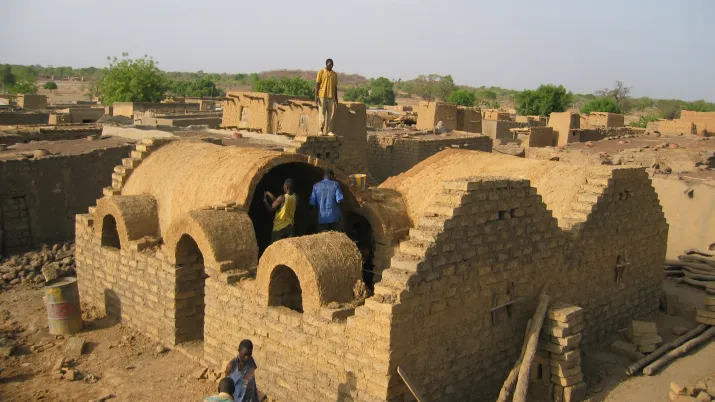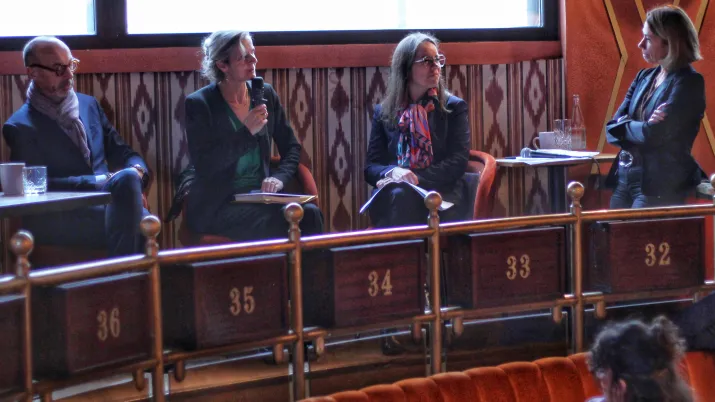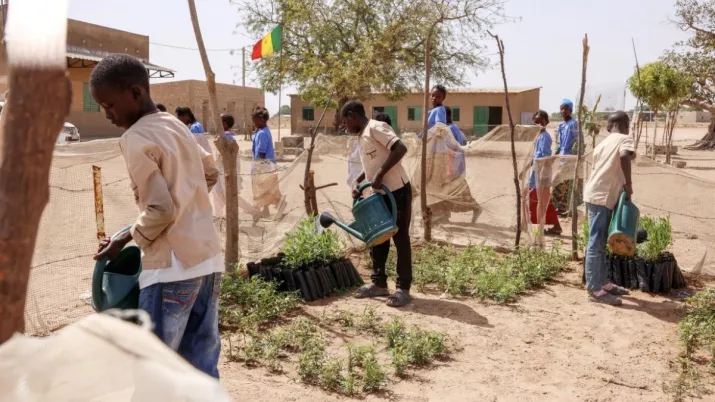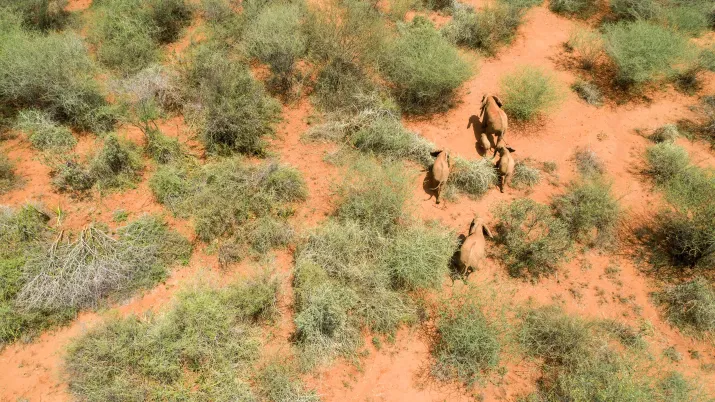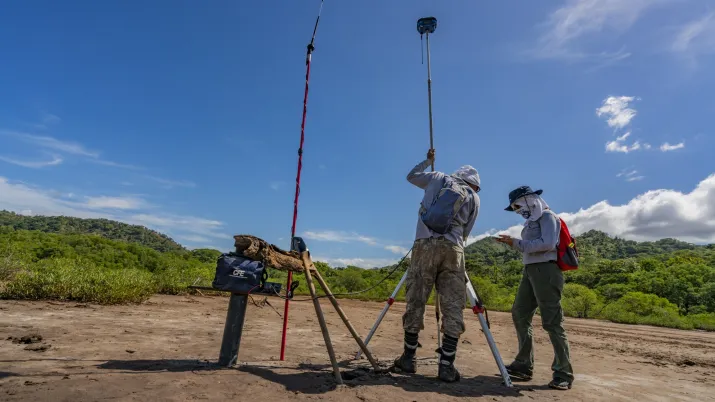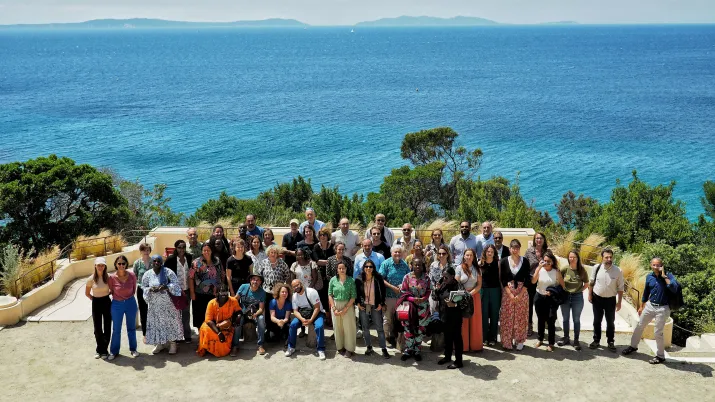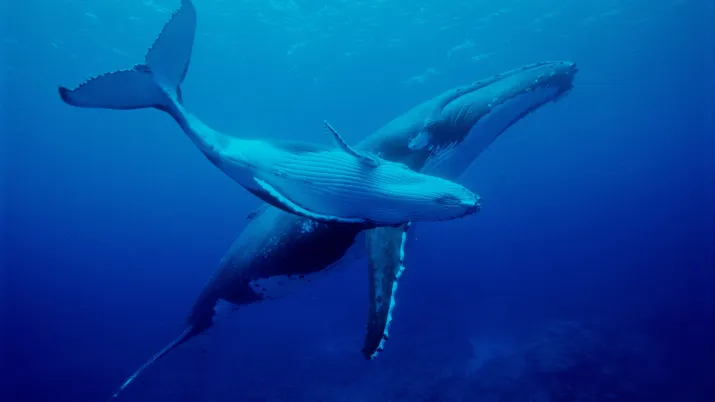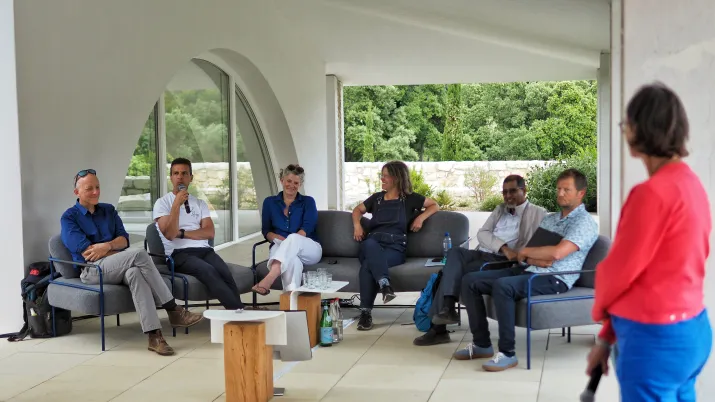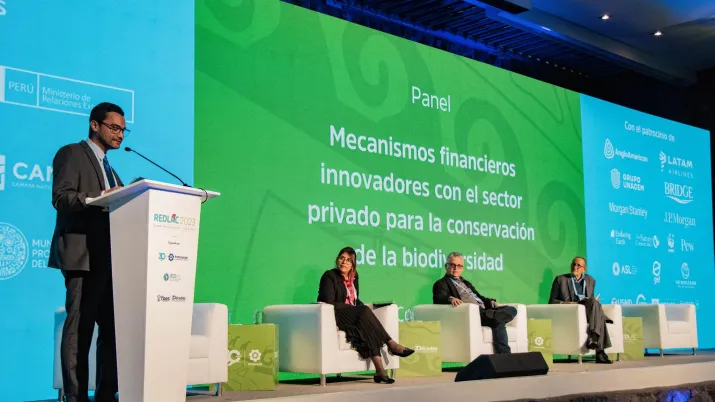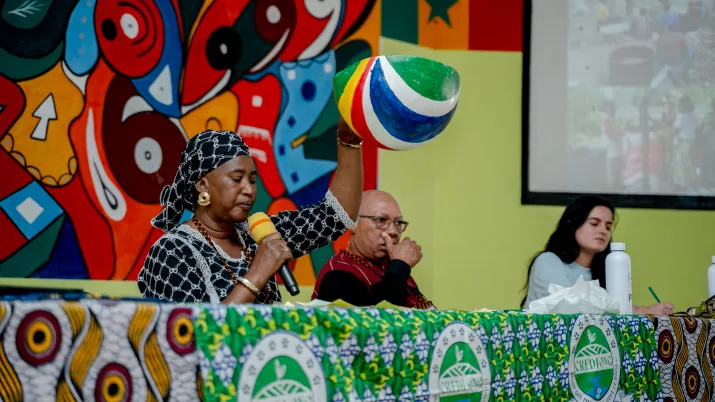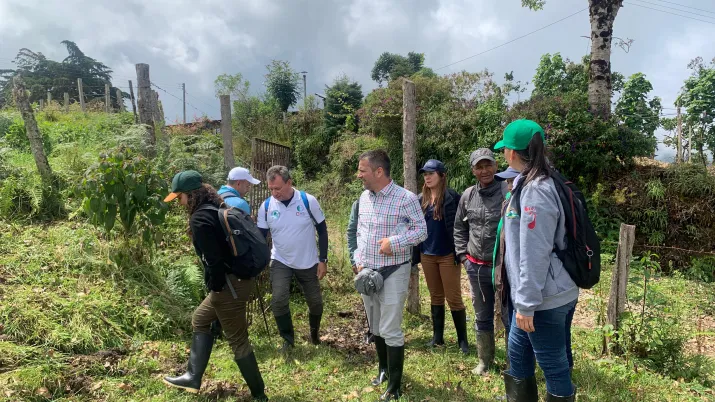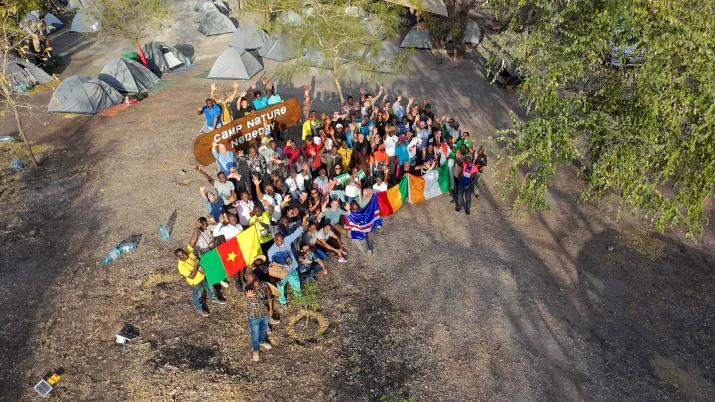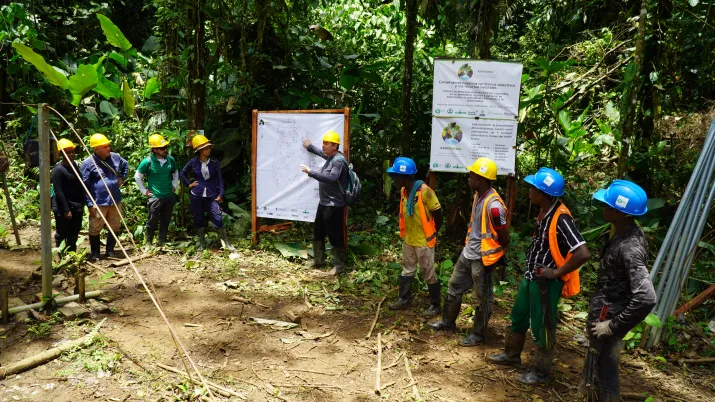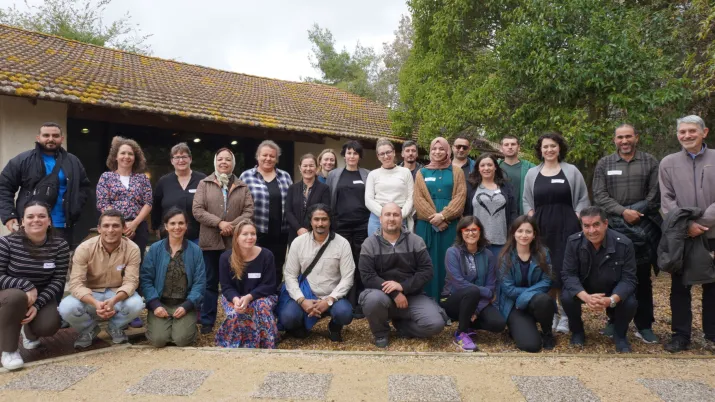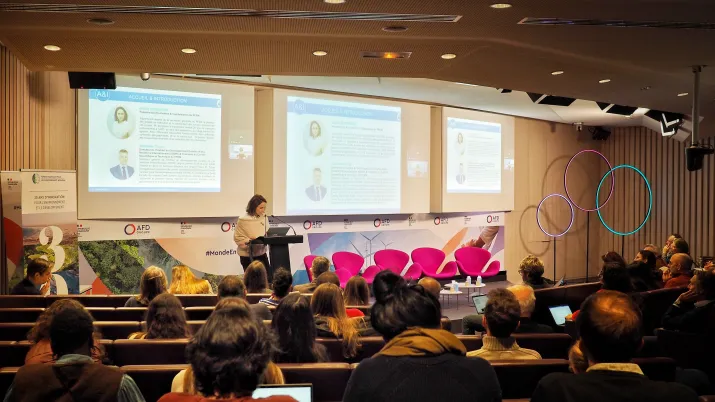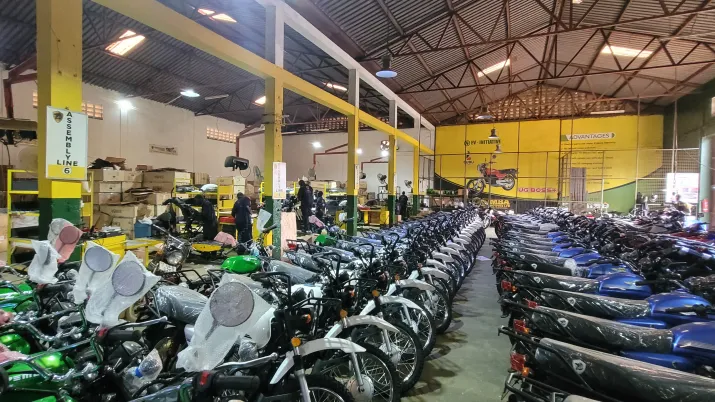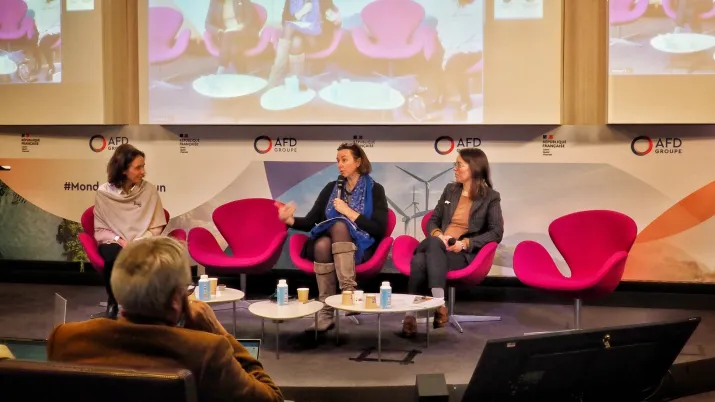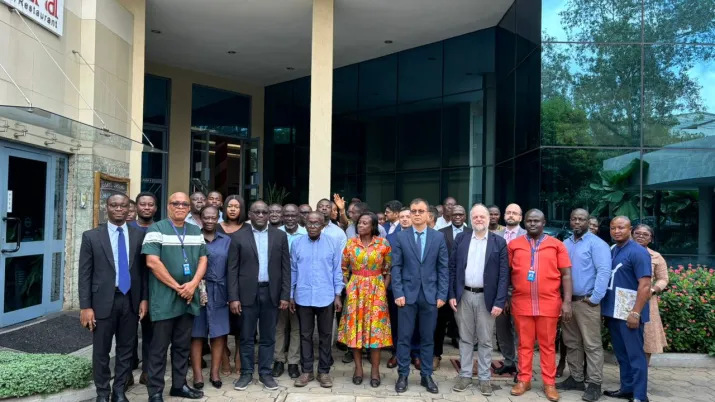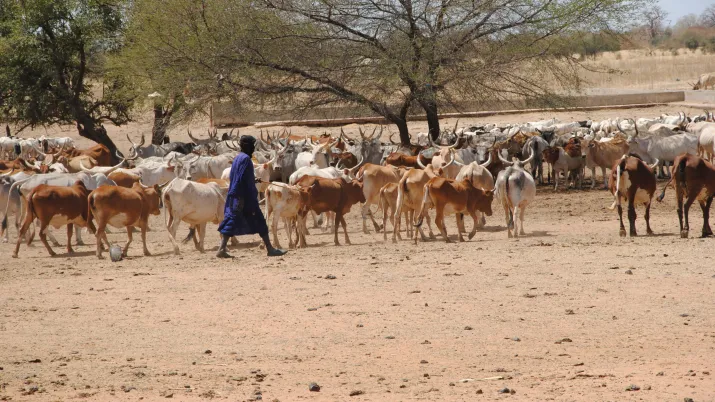News
Ecoconstruction: A long-term action by the FFEM to build differently and scale up
The building sector accounts for one-third of global greenhouse gas emissions. Caught between the climate emergency, rapid population growth, and promising local innovations, the building sector must...
Published on
Feedback on the morning-debate "For a resilient city"
This morning, our partner CITY Linked brought together public actors, experts, practitioners and institutions committed to reflect together on the levers of urban resilience.
From Paris to Belem: 10 years of innovative solutions in the service of the Paris Agreement
As COP30 opens in Belém, ten years after the signing of the Paris Agreement, the French Facility for Global Environment (FFEM) reminds us that innovative solutions do exist to turn climate ambitions i...
Published on
Uniting knowledge, people and actions: the vision promoted by FFEM at the 2025 IUCN Congress
The IUCN World Conservation Congress is being held from 9 to 15 October 2025 in Abu Dhabi. Flagship moment for biodiversity and sustainable development, it brings together governments, NGOs, indigenou...
Published on
Innovating together: the strength of FFEM’s cooperation, builder of bridges between the South and the North
On this United Nations Day for South-South cooperation, spotlight on initiatives that, thanks to local know-how and the sharing of experiences between countries in the South, bring forth solutions ada...
Published on
Harnessing Nature-based Solutions for a Sustainable Blue Economy: Reflections on the FFEM Exchange Day ahead of the 3rd United Nations Ocean Conference
The French Facility for the Global Environment (FFEM) had the pleasure to organize on Tuesday, June 3, 2025 with the Conservatoire du littoral, the Domaine de Rayol, the French Development Agency, IDD...
Published on
The FFEM at the Heart of Ocean Protection Efforts during the 3rd United Nations Ocean Conference
On the occasion of the 3rd edition of the United Nations Ocean Conference (UNOC), the French Facility for Global Environment (FFEM) reaffirms its commitment to climate resilience and the preservation...
Published on
Bridging Scientific Knowledge to Better Protect the Ocean
As the third United Nations Ocean Conference (UNOC) approaches—taking place from June 9 to 13 in Nice—the French Facility for Global Environment (FFEM), in partnership with the Tara Ocean Foundation,...
Published on
30 years of the FFEM: throwback on a collective adventure looking towards tomorrow
On 10th April, the French Fund for the Global Environment (FFEM) celebrated three decades of pioneering initiatives in the service of life in Paris at the Ministry of Economy and Finance. Surrounded...
Published on
Earth day : Act today for tomorrow
Every April 22, Earth Day reminds us how crucial it is to act together to protect life and our planet. On this occasion, the French Facility for Global Environment (FFEM) highlights two projects it su...
Published on
Women and Biodiversity: When Economic Inclusion Meets Forest Conservation in Cameroon
Since its creation, the French Global Environment Facility (FFEM) has been supporting projects that reconcile environmental protection with reducing inequalities, ensuring the inclusion of women in ec...
Published on
FFEM Insights: Xavier Debade, expert in ecosystem restoration and sustainable forest management
To better understand the work of the FFEM, we invite you to meet Xavier Debade, who joined FFEM in July 2023 as a project manager focusing on forest conservation and ecosystem restoration. As the larg...
Published on
Small-Scale Initiatives Program : 20 years of Local Actions supported by the FFEM to help preserve African bio...
From February 2 to 7, the Forum celebrating the 20th anniversary of the Small Initiatives Program (PPI) marked two decades of concrete actions and exemplary commitments to the preservation of African...
Published on
World Day of Social Justice: a look back at the Union Natural project in Colombia's Pacific region
On the occasion of World Day of Social Justice, we would like to share one of the flagship projects supported by the French Global Environment Facility (FFEM). Since 2018, the FFEM has been supporting...
Published on
World Wetlands Day: A Look Back at Biodiversity Protection in the Mediterranean Region
Every year, World Wetlands Day is an opportunity to raise awareness about the importance of these ecosystems (marshes, wet meadows, mangroves…), which are essential for maintaining natural balance and...
Published on
The FFEM invites discussion on carbon finance for sustainable development: recap of the roundtable on January ...
On January 21 in Paris, the French Facility for Global Environment (FFEM) organized a hybrid event to mark the publication of its capitalization work "In Focus carbon finance: a powerful tool for a su...
Published on
THE FFEM SUPPORTS INNOVATION FOR A FAIR AND SUSTAINABLE ENERGY TRANSITION
Aware that the adoption of clean energy is an integral part of the fight against climate change, one of the priorities of the French Facility for Global Environment (FFEM) is to contribute to energy e...
Published on
The FFEM unveils its new capitalization initiative : "IN FOCUS - Carbon finance : a level for a sustainable fu...
On January 21 in Paris, the French Facility for Global Environment (FFEM) organized a hybrid event to mark the publication of its capitalization work "In Focus carbon finance: a powerful tool for a su...
Published on
AGORA: An Ambitious Project for Sustainable Cooling in West Africa
Ghana and Nigeria are paving the way for a more sustainable future with the AGORA project, supported by the French Facility for Global Environment (FFEM).
Published on
Combatting desertification : FFEM’s actions through concrete examples
On the occasion of the Desertification COP taking place from December 2 to 13, let’s revisit the FFEM’s efforts to combat this threat to ecosystems and communities in arid regions. The French Facility...
Published on

